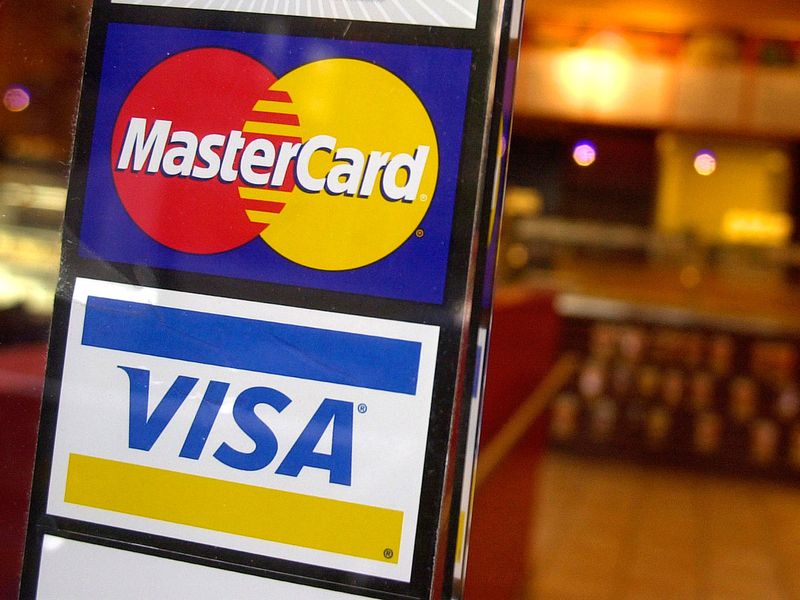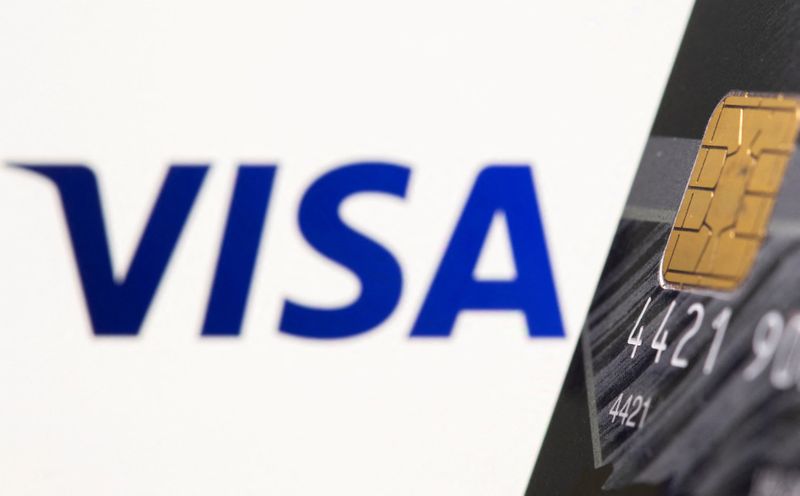
Dubai: Payment industry giants Visa and MasterCard are reportedly getting ready to raise credit card fees for retailers worldwide in the coming months, but if you were wondering whether or not it will affect you as a shopper in any way, here’s what you should know.
According to a document obtained by The Wall Street Journal, Visa and MasterCard are looking to hike fees large retailers pay when they accept shoppers’ payments via cards. The increases will apply to most online credit and debit card purchases made across the world, starting October this year.
Who will be most affected by this charge change?
Most of the increase will be accounted for what is known as ‘interchange’ fees which go to the bank issuing the credit card. But what are ‘interchange’ fees? When you buy something with a credit card, the seller pays a fee in order to accept that payment.
Several parties get a cut of what the seller pays in order to accept a payment. Among them is the bank that issues your credit or debit card. The portion that goes to the card issuer is known as ‘interchange’ – which ranges from 1 per cent to 3 per cent of your transaction, plus a flat fee.
“Though largely invisible to consumers, ‘interchange fees’ can indirectly impact consumers as merchants typically pass on these fees to customers through higher prices,” explained Dr. Khalid Essaye, an Abu Dhabi-based researcher specialising in consumer spending.
“Consequently, users may see higher prices on goods to compensate for costs incurred by retailers. Also, ‘interchange fees’ are worth learning about as they help explain how credit card rewards are funded. They affect a seller's pricing and, in some cases, whether your card is even accepted there.”
Much to the relief of shoppers, in the UAE, a number of such card-related costs, which signify the largest cost for most retailers and business owners, are not passed to shoppers, as per law. However, credit experts noted that the charges exist because all of the credit and debit card settlements are done outside of the UAE and then processed back to the issuing banks here.

How higher ‘interchange fees’ can affect card users
Interchange fees, also called ‘swipe fees’ or ‘exchange fee’, have increased the acceptance of cards by merchants. However, higher interchange fees may discourage small businesses, particularly those with slim profit margins, from accepting card payments.
But why do ‘interchange fees’ exist in the first place and who sets them? Processing credit or debit card payments comes with costs: Credit card companies have systems in place to securely and safely collect money from consumers and send it to a retail merchant, and they charge for that service.
Although card issuers offer benefits to cardholders like extended warranties, rental car insurance and credit card rewards, ‘interchange fees’ help fund those benefits. The cost is set by the payment networks that credit cards run on, including Visa, MasterCard, American Express and Discover.
“’Interchange fees’ vary on many factors, including what kind of purchase it is, where you make it, what kind of retailer it is, what bank issues the card, what specific card you're using (such as rewards versus no rewards), and more,” said Abu Dhabi-based consumer credit analyst Rajesh Markara.
While there are other fees that merchants pay for the privilege of making sales via credit and debit card, interchange fees are by far the largest, representing 70 per cent to 90 per cent of the total fees paid to banks by merchants.
Should you be worried of such a fee hike?
Reportedly, much of the current increase comes from this exchange fee. This is the fee charged by card-providing systems that retailers and business owners must pay when they accept credit card payments from buyers. This fee will then go to the bank that issued the card.
Even though it isn’t directly visible to the buyer, the exchange fee is a concern to retailers and business owners. In recent years, the charges have increased as credit cards with rewards become more popular, but it is learned that they often have high fees to offset travel and other incentives.
“Although merchants, not cardholders, are charged interchange fees, the charges can still affect consumers or shoppers in a variety of ways. A retailer may, for instance, choose to embed the cost of those fees in the prices of its goods, in effect passing it along to customers,” agreed Markara.
Taking such charge hikes into consideration, the card issuer network has a policy of ‘accepting all cards’, Dubai-based retail consultants explain, meaning that once a buyer has accepted a certain type of credit card issued by one bank, it must also accept cards from all banks.

Such charges totalled an estimated $55.4 billion (Dh203 billion) for Visa and MasterCard in 2021, doubling the amount paid in 2012, according to a report from US-based Nilson, which publishes news and statistics on the global payment industry.
Bottom line: What do such fees mean for cardholders?
“Some retail merchants or business owners, especially those that sell many lower-priced items, may require customers or shoppers to make a minimum purchase if they want to use a credit card, because it can help the merchant cover the ‘interchange fee’,” added Essaye.
“For example, if a customer purchases a Dh1 pack of gum and the merchant has to pay 40fils toward an interchange fee, the profits may be so low that it’s not worth selling the gum. This is why small shop owners worldwide even ban the use of certain cards, citing high ‘interchange fees’.”
However, small businesses can cut down their credit card processing costs by setting a minimum credit card transaction amount. Credit card processing costs can add up if you sell many inexpensive items, especially for sales under Dh10.
So retail and credit consultants also remind shoppers to be cautious when shopping – especially when deciding between whether or not to use your credit card, and use your debit card or cash instead.
“Although the savings customers potentially make from limiting the use of cards, and in turn the higher fees that come along with it, will not be significant in the short run, these seemingly small costs can add up over time,” added Markara.










